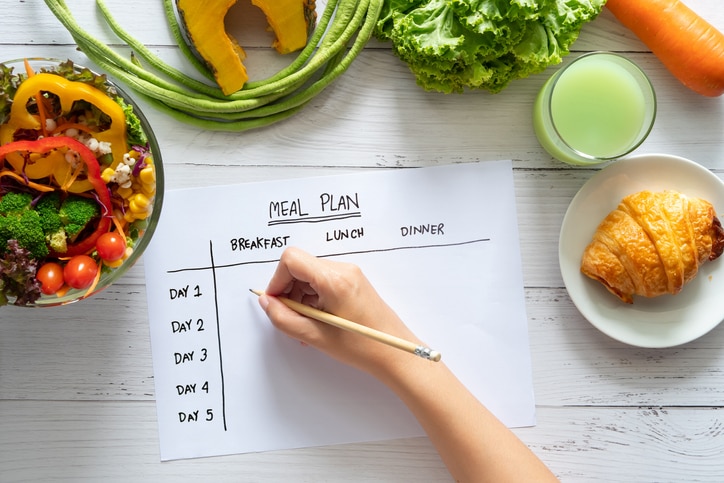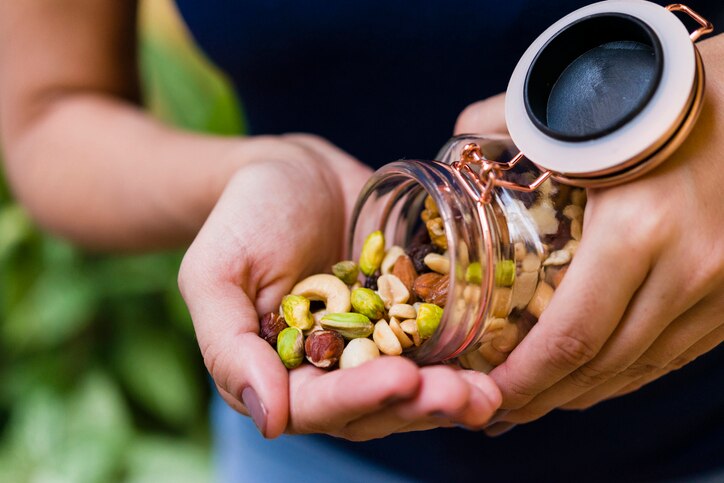Stress-eating for comfort in a time of anxiety? Food can be one of the easiest e ways to make yourselves feel better in acute times of stress. Yet, emotionally eating can wreak havoc with your mental and physical energy, disrupt healthy sleep and weaken immunity. Try these tips to avoid stress-eating.
WK18 HowToAvoidStressEatingDueToGlobalHealthIssues EngV2
null
#1 Create an eating schedule
Establish an eating schedule and stick to it as you would for a regular workday. Getting up at the time you usually do and maintaining a sense of normalcy will help you keep regular eating habits. Remember to make a weekly meal plan and grocery list to minimize trips to the grocery store while social distancing. Think twice before deciding what to take home and make the right food choices.

#2 Plan snacks just as you plan meals
Plan snacks in advance. Go for protein-dense snacks that will support your health, such as nuts, seeds, dehydrated kale chips and meat sticks. Or make your own nutritious snacks including celery with peanut butter, fruit smoothies, popcorns. The right snacks can help manage hunger, increase energy and boost nutrition.

#3 Eat without distractions
To manage stress-eating during self-isolation, you should eat slowly and eat without distractions. Put down your phone and tune in to mindful eating when you eat. Look at your food, chew slowly and put down your fork between each mouthful. It is also a good idea to keep a food diary. Write down what you eat, how much you eat, when you eat, how you are feeling when you eat.










